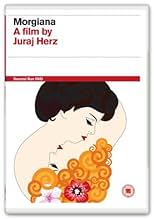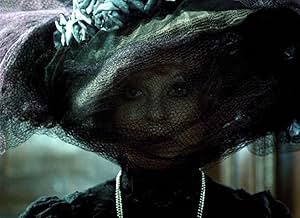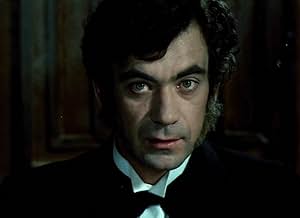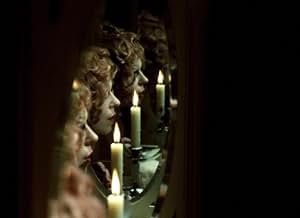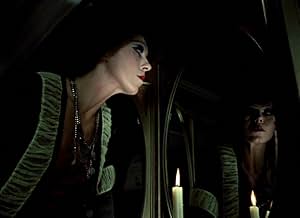Don't watch this for the story. As other films by this maker, it starts well enough, twin sisters, one of them wicked, the other is pure, have inherited a fortune from their dead father, but the wicked sister is envious of the other and plots her murder. Slow-burn poison. But she's uncertain whether it works or not.
It is tantalizing for a while. You have poison-induced hallucinations in the 'good' sister, mirrored in paranoid tension in the 'bad' sister— testing the poison, she has fed it to her maid's dog, but her own cat may have eaten some, and her maid's child. Eaten inside by doubt (both are), all she can do is wait.
So you are prepared to conflate parallel layers, ready for rich overlap. The two sisters are played by the same actress.
But it doesn't take inside.
It doesn't abstract. It is, to the end, about what's going to happen with the story. Which is too bad, because the camera, the way we see, is already abstract. Having seen now a few films by this guy, Herz, I'm convinced he was visually the most ambitious of the Czech filmmakers— there are hallucinative swirls here, distortion of space, dynamic prowling. The Gothic mood may recall Bava, but the camera is on a whole other level, much more cinematic.
There is some pretty amazing stuff here. Not the overt hallucinations, but some of the peripheral blurring, like the swirling shots as the carriage filled with soldiers eager for sex is dashing through the 'red- light' district. The whole film, rooted in the delirious sisters, is about such bending of vision.
It's as simple as this, however. Truly great films, those with the power to change you, aren't about the story. The story is there, the images with some logic behind them, but that is so we have something 'real' to bend as we reach for the more expansive causality of how images and logic come into being, which is not a logical process but structured chaos. Even Jess Franco can work when logic is sufficiently bent.
If you watch this to the end, the last scene features some truly mind-bending causality, it can be taking place in reality, maybe not, it's puzzling that it happens. Is it feigned insanity? Is it structured chaos as film noir fate? For a moment, you're airborne, hovering as you try to make sense. And in the next scene we have the clean explication, suddenly deflating you back to what its all about. I read that the filmmaker was working under heavy constraints, this may explain the blunder.
So we have whirls and eddies in the camera, but no whirls in logic to get gravity pull.

